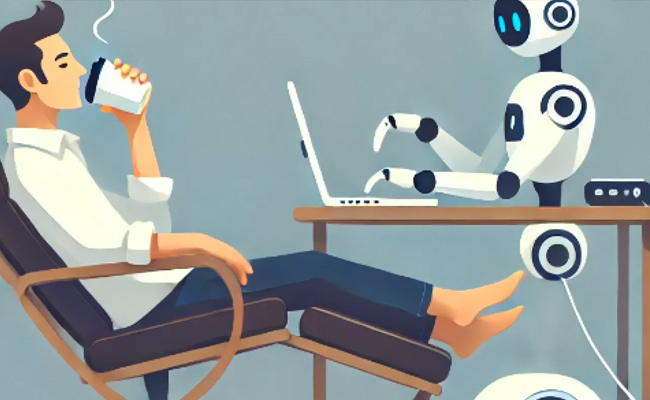
Special Articles

These days, wherever you look, discussions around Artificial Intelligence (AI) are everywhere. What changes will AI bring? Whose jobs will be lost? Who will benefit? These have become routine debates. Everyone is coming up with their own interpretations and analyses on the subject. One undeniable reality in all this is that AI will have a social impact as well.
Just like how various developments over past decades have affected human mental states — from increasing or decreasing brain activity — the influence of AI on human behavior has become a topic of serious curiosity. Some experts are now warning that AI might actually be making people lazy. Not necessarily in a physical sense, but mentally — where people no longer feel the need to engage their brains or think critically.
Recently, a post on LinkedIn went viral. It was about a young man who had just secured a job. He sent a thank-you email to the company — but here's the catch. He had asked ChatGPT to draft the mail for him, which it did. But instead of using just the content, he copied and pasted the entire response from ChatGPT — including the prompt and context — directly into the email body.
Naturally, the company quickly figured out what had happened. They were amused at first, but eventually responded to him saying, “We don’t need someone like you on our team.” The issue wasn’t that he used ChatGPT — it was that he didn’t bother to even read or edit the content. He simply sent it as-is, revealing a lack of effort and understanding.
This is a perfect example of mental laziness triggered by AI. Once someone gets a job and still makes such careless mistakes, it raises serious questions. With tools like ChatGPT, writing long emails is now effortless. There's no need to learn grammar, build vocabulary, or structure ideas — AI does it all.
As a result, core human skills like writing, thinking, and problem-solving may gradually decline. When everything is outsourced to AI tools, people don’t feel the need to think or spend time on tasks. This leads to a worrying trend — reduced cognitive effort and growing dependence on machines.
In the past, gaining knowledge meant reading books. Sometimes you had to go through many books just to get the right information. Then came Google — people started searching and reading articles, even if it was minimal. But now, even that step is disappearing. AI tools directly give the answer — no need to open links, read, or compare sources.
This eliminates the process of exploring, cross-checking, and learning related concepts along the way. When that disappears, so does the need for research, critical thinking, and deeper understanding. Eventually, this leads to a kind of mental laziness — one of the most dangerous consequences of AI advancement.
Advertisment